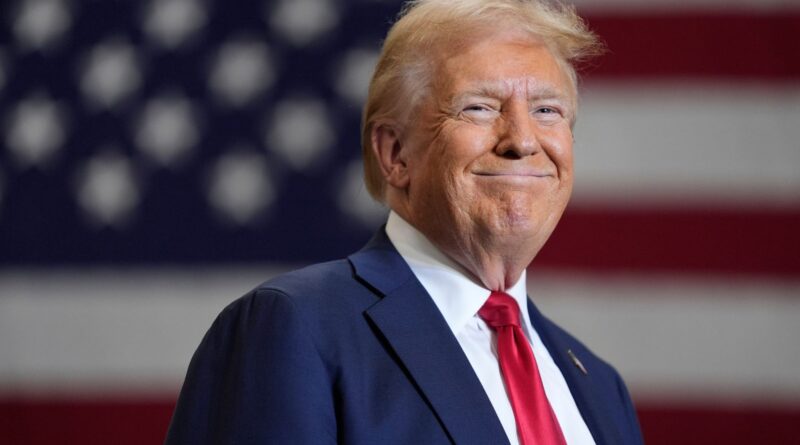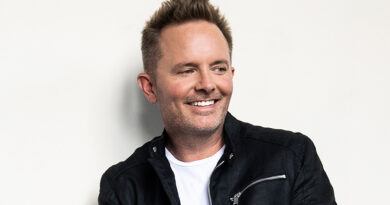Trump Reiterates: Christianity Faces Existential Threat in Nigeria
Trump’s renewed warning in Nigeria
United States President Donald Trump has once again sounded alarm over what he calls “mass killings of Christians” in Nigeria. In a recent video shared by the White House on X, Trump warned that Christianity in Nigeria is “facing an existential threat,” blaming “radical Islamists” for widespread violence and persecution.
“Christianity is facing an existential threat in Nigeria,” Trump said. “Thousands and thousands of Christians are being killed. Radical Islamists are responsible for this mass slaughter.”
He announced that he was officially designating Nigeria as a “Country of Particular Concern,” citing U.S. legal provisions that allow such a classification for nations accused of severe violations of religious freedom.
The “country of particular concern” designation explained
Under U.S. law, the “Country of Particular Concern” (CPC) designation is issued by the Secretary of State to countries that engage in or tolerate severe violations of religious freedom. The classification can lead to sanctions or other diplomatic actions, depending on the scale of the abuses involved.
According to the Family Research Council, this label is often applied when a government either directly participates in religious persecution or fails to protect vulnerable groups. The CPC designation is among the most serious human rights measures available to U.S. policymakers.
Trump emphasized that his decision was based on both statistical data and human rights reports detailing targeted attacks on Christian communities across Nigeria. He cited figures suggesting that thousands of Christians have been killed, describing the situation as a “mass slaughter” that demands immediate international intervention.
ALSO READ: Nigeria’s Christians Under Fire and Denial
Calls for congressional action
Trump urged immediate response from Congress, particularly from members of the House Appropriations Committee. “What horrible numbers,” he said. “Something has to be done. I am asking Congressman Riley Moore, together with Chairman Tom Cole and the House Appropriations Committee, to immediately look into this matter and report back to me. And I mean like immediately.”
He insisted that the United States could not “stand by while such atrocities are happening in Nigeria and numerous other countries,” pledging to defend Christians worldwide.
“The killing of Christians will not be allowed,” Trump declared. “We stand ready, willing, and able to save our great Christian population around the world.”
Threat of U.S. intervention
Earlier, Trump had hinted at the possibility of U.S. military involvement if what he described as “Christian genocide” in Nigeria is not halted. He stated that if the Nigerian government fails to act decisively, Washington “will intervene militarily.”
This statement has sparked widespread concern internationally, as it suggests a potential escalation of U.S. foreign policy toward direct involvement in African security matters.
ALSO READ: My Energy Comes from God’s Word -Bishop Abioye
Nigeria’s official response
In response to Trump’s comments, President Bola Ahmed Tinubu reaffirmed that Nigeria remains a democratic nation committed to religious freedom and equality for all faiths.
In a statement released on November 1, Tinubu said: “Nigeria stands firmly as a democracy governed by constitutional guarantees of religious liberty.” He stressed that his administration has actively engaged both Christian and Muslim leaders in dialogue to address insecurity and promote national unity.
The president added that the portrayal of Nigeria as religiously intolerant “does not reflect our national reality,” emphasizing that religious tolerance and mutual respect have always been part of the country’s social fabric.
“Nigeria’s diversity is a source of strength, not division,” Tinubu said. “Our citizens live, work, and worship side by side across faiths and regions. We reject any narrative that seeks to divide our people along religious lines.”
Growing debate on religious freedom and security
Trump’s remarks have reignited international debate about the intersection of religion, security, and governance in Nigeria. The country, which is roughly divided between a Muslim-majority North and a Christian-majority South, has long grappled with extremist violence, banditry, and farmer-herder clashes that often take on religious undertones.
Analysts note that while religious persecution exists in certain regions, many of Nigeria’s security crises are rooted in broader socioeconomic and political issues rather than purely faith-based conflicts. Nevertheless, human rights groups continue to document attacks on Christian and Muslim communities alike, often carried out by extremist groups such as Boko Haram and Islamic State affiliates.
ALSO READ: Wole Soyinka: US Visa Revocation and His Stand
Broader implications for US-Nigeria relations
Trump’s declaration adds a new layer of tension to U.S.-Nigeria relations. The CPC designation may influence visa policies, development aid, and military cooperation between both nations. It could also shape how international organizations and Western allies engage with Nigeria on human rights and counterterrorism issues.
Observers believe the statement, whether politically motivated or humanitarian, underscores the growing global focus on religious freedom and the protection of minorities in conflict zones.
Conclusion
Trump’s insistence that Christianity faces an “existential threat” in Nigeria has drawn both support and criticism. Supporters view it as a call for action against religious persecution, while critics see it as an oversimplification of Nigeria’s complex security challenges.
As Nigeria continues to balance religious diversity with national stability, the debate underscores the need for factual dialogue, not fear-based rhetoric. Ensuring lasting peace will depend not just on military intervention or political posturing, but on inclusive governance, justice, and social harmony among all Nigerians.
Content Credit: Ohidah Oluwaferanmi
Image Credit: The Indian Express




